13 Ideal Rose Companion Plants for a More Stunning Garden
Roses are a favorite in gardens, and when paired with the right companion plants, they can truly flourish. These plants work in harmony with roses, helping to deter pests and boost overall growth. Adding the right companions can enhance the appearance of your rose garden and provide extra benefits. Some plants offer shade, while others attract helpful insects or enrich the soil. With the right choices, your roses will thrive even more.
This post may contain affiliate links, which helps keep this content free. Please read our disclosure for more info.
Lavender
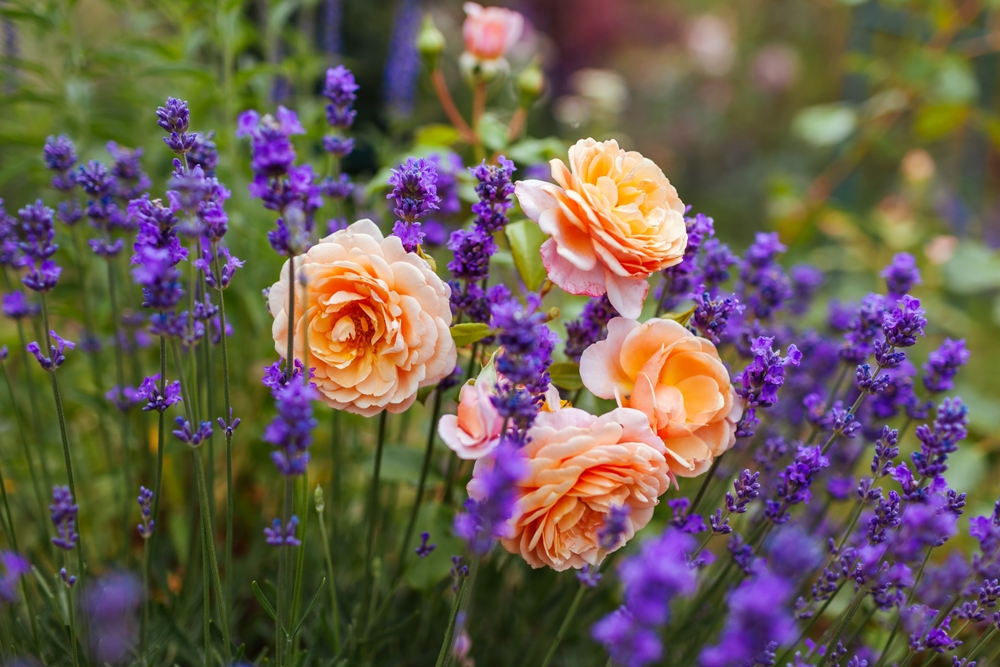
Lavender is a fragrant herb that pairs well with roses due to its ability to repel pests like aphids and moths. The tall, spiky flowers of lavender also add a beautiful contrast to the soft blooms of roses. It thrives in sunny spots, making it the perfect companion for roses that enjoy similar conditions. Lavender’s pleasant scent and ability to attract pollinators like bees can help your roses flourish.
This herb does not require much water, making it an ideal low-maintenance plant for rose gardens. The strong scent of lavender also deters many insects, providing natural pest control for your roses. Lavender grows well in well-drained soil, which also benefits roses. Its purple flowers create a stunning visual contrast against the bright colors of rose blooms.
Garlic
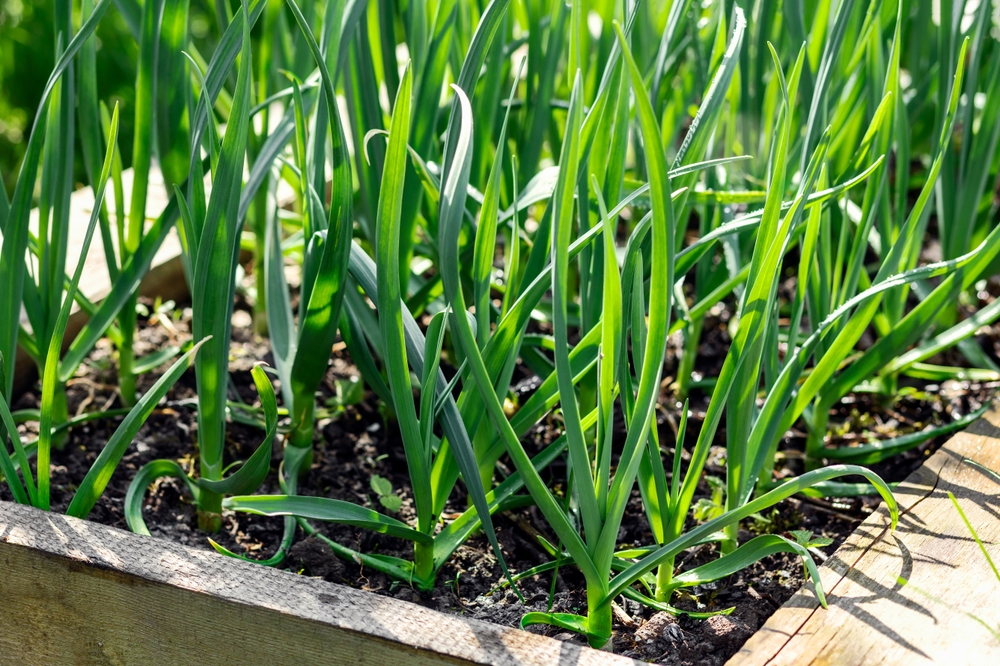
Garlic is not just a useful herb for the kitchen; it can also be an excellent companion for roses. The strong scent of garlic helps deter pests such as aphids, spider mites, and even rabbits. Planting garlic near your roses can protect them from these common garden pests. It is easy to grow and does not require much space, making it a great addition to any rose garden.
Garlic can also improve soil health, as it helps to repel harmful bacteria and fungi. It grows well in full sun and well-drained soil, conditions that roses also enjoy. When planted alongside roses, garlic will not compete for resources but will instead support their growth. This hardy plant is both practical and beneficial in maintaining a healthy garden.
Marigolds
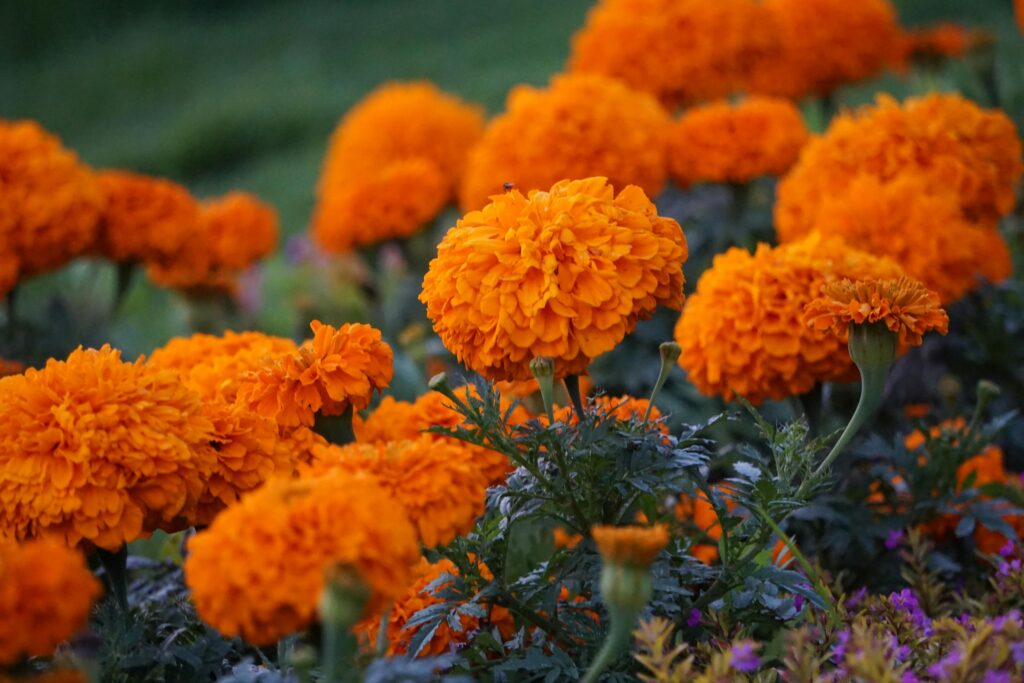
Marigolds are often used as companion plants for roses because they naturally repel insects that could harm your roses. Their bright orange and yellow flowers are not only eye-catching but also effective at keeping pests like aphids, nematodes, and whiteflies at bay. Marigolds can be planted around the base of rose bushes or throughout the garden to provide an added layer of protection.
In addition to pest control, marigolds are easy to grow and add vibrant color to the garden. They thrive in sunny spots and can tolerate a variety of soil types. Their ability to attract beneficial insects, like ladybugs, further helps protect your roses from harmful pests. Marigolds also help improve soil health by adding nitrogen, a vital nutrient for roses.
Basil
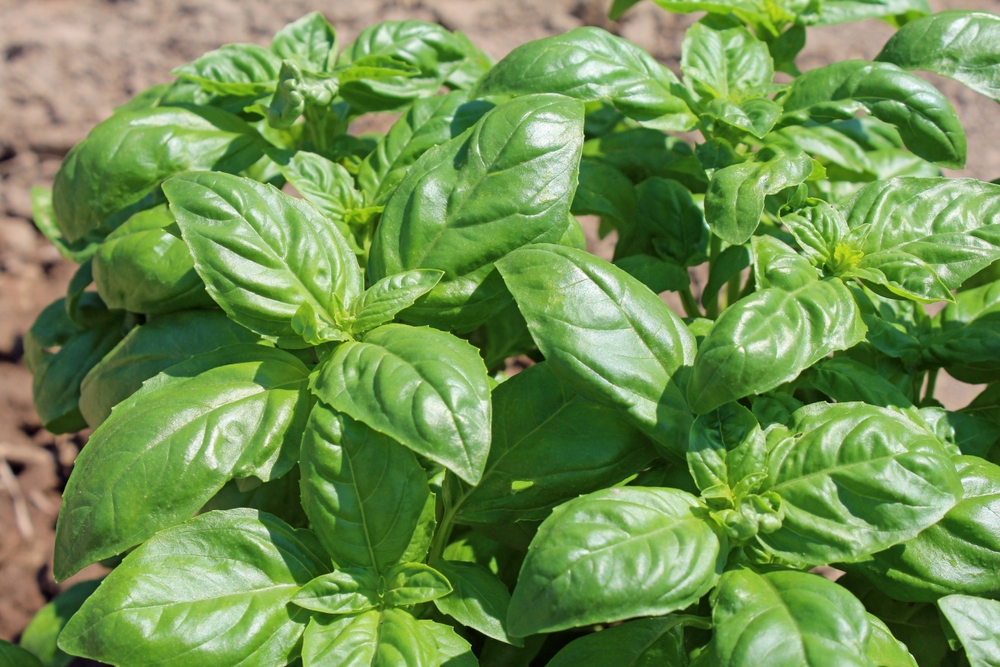
Basil is a fragrant herb that can enhance the growth of your roses by attracting beneficial insects and repelling harmful ones. The aroma of basil helps keep aphids, whiteflies, and mosquitoes away from your roses, which are common pests. Planting basil next to your roses can also improve the overall health of the garden by encouraging the presence of pollinators like bees.
Basil thrives in sunny areas with well-drained soil, similar to the growing conditions of roses. It can be planted in the same bed or container as roses without competing for nutrients. Its vibrant green leaves and small, delicate flowers provide a lovely contrast to the bold colors of rose blooms. Additionally, basil is an excellent culinary herb that can be harvested for use in the kitchen.
Chives
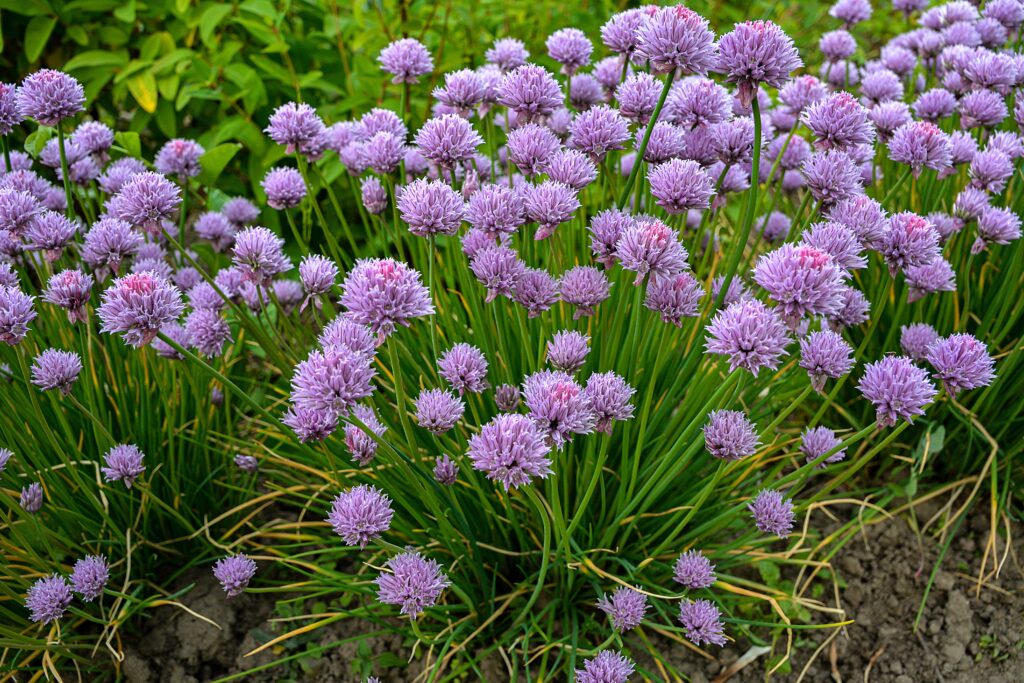
Chives are another herb that pairs well with roses, offering both aesthetic appeal and practical benefits. Their mild onion flavor attracts pollinators and beneficial insects while helping to ward off aphids and other pests. The purple flowers of chives contrast beautifully with the roses’ petals, adding another layer of visual interest to your garden.
Chives grow well in both sunny and partially shaded spots, making them versatile companions for roses. They also thrive in well-drained, fertile soil and do not compete heavily for nutrients. Chives can be easily propagated by dividing their bulbs, allowing for easy expansion in the garden. Their natural pest-repellent properties make them a great, low-maintenance addition to any rose bed.
Thyme

Thyme is a fragrant, low-growing herb that works well as a ground cover around rose bushes. It not only provides a beautiful green backdrop for roses but also helps to repel pests such as aphids, cabbage worms, and mosquitoes. Thyme’s small, delicate flowers attract beneficial insects like bees, which are essential for pollinating roses.
This herb thrives in well-drained soil and full sunlight, similar to the growing conditions of roses. Thyme is drought-tolerant once established, making it a great companion plant that does not require excessive care. As a low-maintenance plant, thyme will not compete with roses for resources. Its ground-hugging habit also helps prevent weeds from growing around your roses.
Chrysanthemums

Chrysanthemums, or mums, are excellent companions for roses due to their ability to repel pests like aphids, Japanese beetles, and spider mites. These colorful flowers bloom in late summer or fall, providing a striking visual contrast to the earlier rose blooms. The scent of chrysanthemums is known to deter various pests, creating a protective barrier around your roses.
Mums grow well in well-drained soil and full sun, conditions that are ideal for roses. They add a pop of color to your garden in shades of yellow, red, and purple. Chrysanthemums are also easy to grow, making them a great choice for gardeners looking to add beauty and protection to their rose beds. The combination of pest control and stunning color makes chrysanthemums a valuable companion for any rose garden.
Alliums
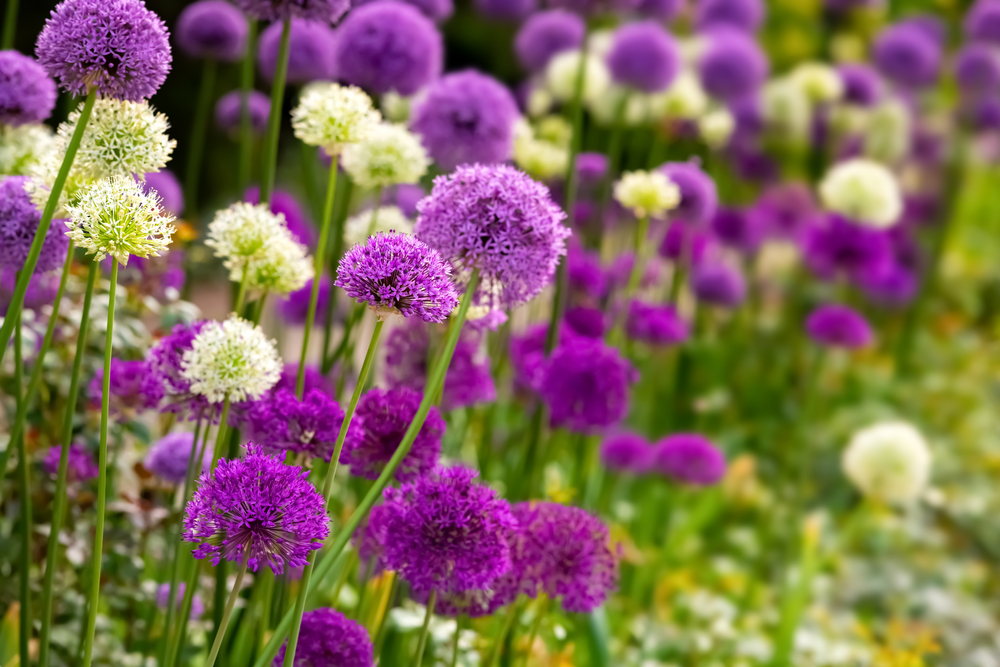
Alliums, with their tall, globe-like clusters of flowers, are a striking companion plant for roses. The strong scent of allium bulbs helps to repel aphids, Japanese beetles, and other pests that commonly attack roses. The tall flower stems of alliums provide height and texture, creating a visual contrast against the low-growing rose bushes.
These plants thrive in sunny locations and well-drained soil, much like roses. Alliums are also great at attracting pollinators, such as bees and butterflies, which are essential for the healthy growth of your roses. Their unique appearance and natural pest-repellent qualities make them a standout companion in any rose garden. They are also easy to grow and require minimal maintenance.
Sweet Alyssum
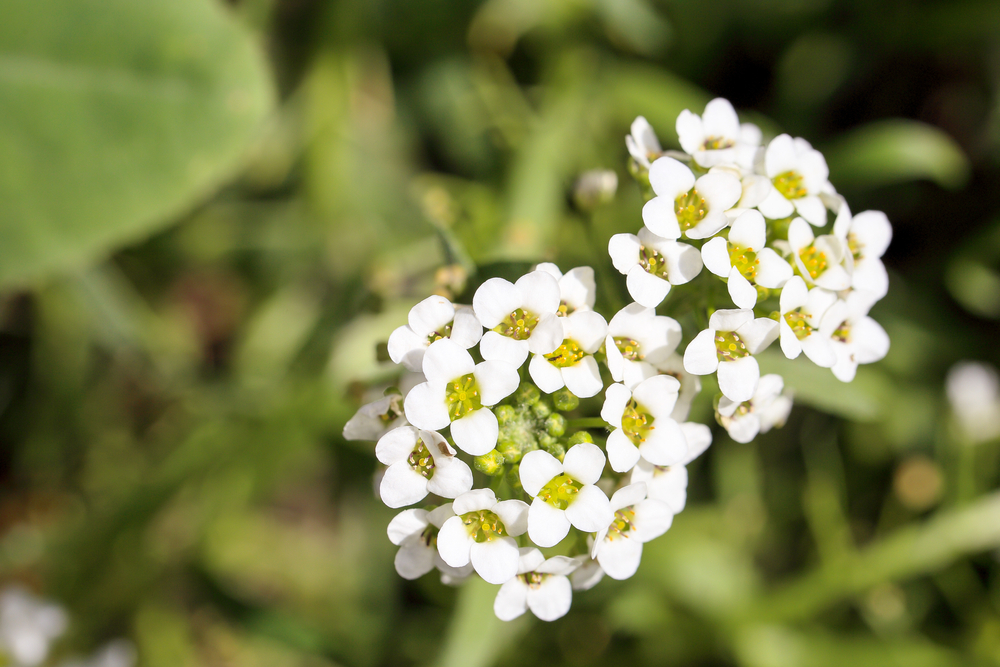
Sweet Alyssum is a low-growing flowering plant that is ideal for planting around the base of roses. Its tiny white, purple, or pink flowers attract pollinators like bees and butterflies, which benefit the roses by improving their pollination rates. The sweet fragrance of Alyssum helps create a pleasant garden atmosphere and adds charm to your rose garden.
This plant thrives in full sun and well-drained soil, which makes it compatible with the growing conditions of roses. Sweet Alyssum also works well as a ground cover, preventing weeds from growing around your roses. It is a hardy, low-maintenance plant that can be grown throughout the year. Its vibrant flowers and natural ability to attract pollinators make it an excellent companion for roses.
Comfrey
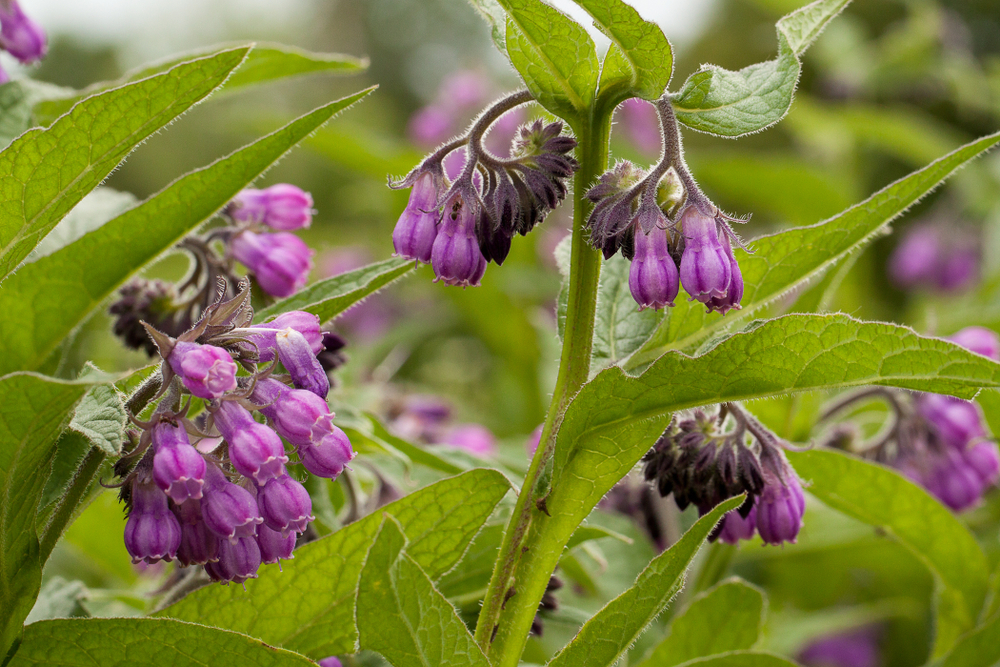
Comfrey is a dynamic plant that works wonders as a companion for roses. It is known for its deep roots, which help bring nutrients up from the soil, benefiting nearby plants, including roses. Comfrey leaves can be used as a mulch around roses to help retain moisture in the soil and provide slow-releasing nutrients.
This plant grows well in full sun to partial shade and thrives in moist, well-drained soil. Its large, broad leaves can act as a natural weed barrier while providing valuable nutrients. The purple flowers of comfrey attract pollinators like bees, which are beneficial for your roses. Comfrey’s ability to improve soil health makes it a great addition to any rose garden.
Nasturtiums
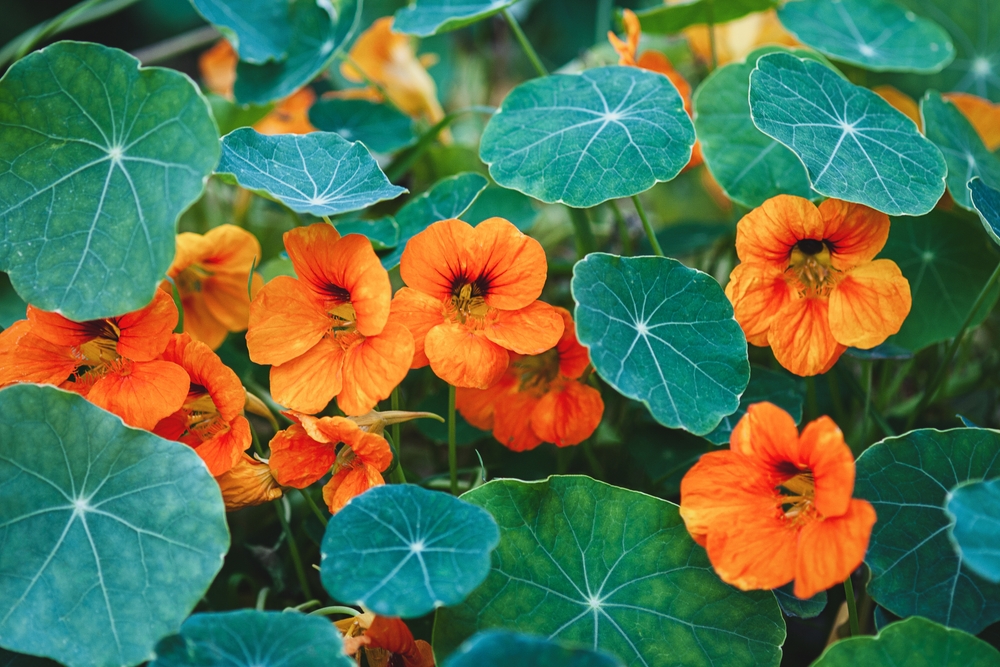
Nasturtiums are a colorful, easy-to-grow plant that works wonderfully as a companion for roses. The vibrant flowers of nasturtiums, in shades of red, yellow, and orange, create a bold contrast against the soft hues of rose blooms. Nasturtiums are known for their ability to repel aphids and other pests that can damage rose bushes.
These plants thrive in well-drained soil and full sun, much like roses. Nasturtiums are also edible, with their peppery leaves and flowers adding a unique flavor to salads. They grow quickly and can spread, making them perfect for filling in gaps around your roses. Their ability to deter pests and add color to your garden makes them a perfect companion plant for roses.
Petunias
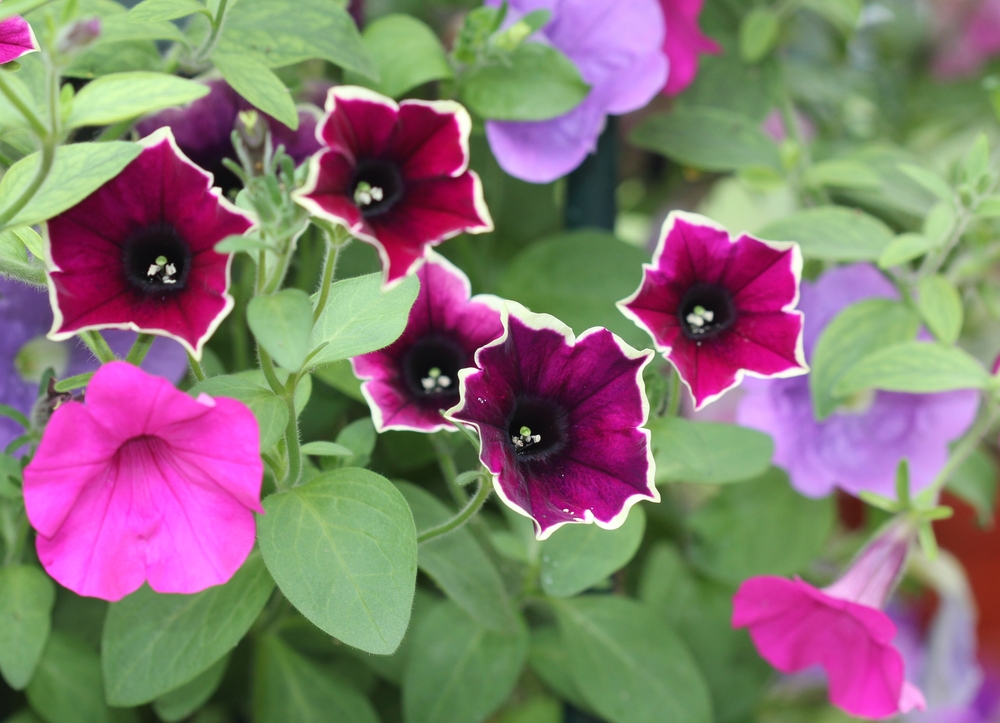
Petunias are bright and cheerful flowers that pair well with roses due to their ability to repel harmful insects. The sweet scent of petunias helps to keep aphids, beetles, and other pests away from your roses. Their colorful blooms, available in a variety of shades, provide a lovely backdrop for rose bushes. Petunias can be planted in the same bed as roses, offering both beauty and protection.
These flowers grow well in sunny areas with well-drained soil, making them compatible with rose growing conditions. Petunias are also low-maintenance, needing only occasional watering and deadheading. Their trailing habit makes them a great choice for planting along the edges of your rose garden. Petunias’ vibrant colors and pest-repelling properties make them an excellent companion for your roses.
Yarrow
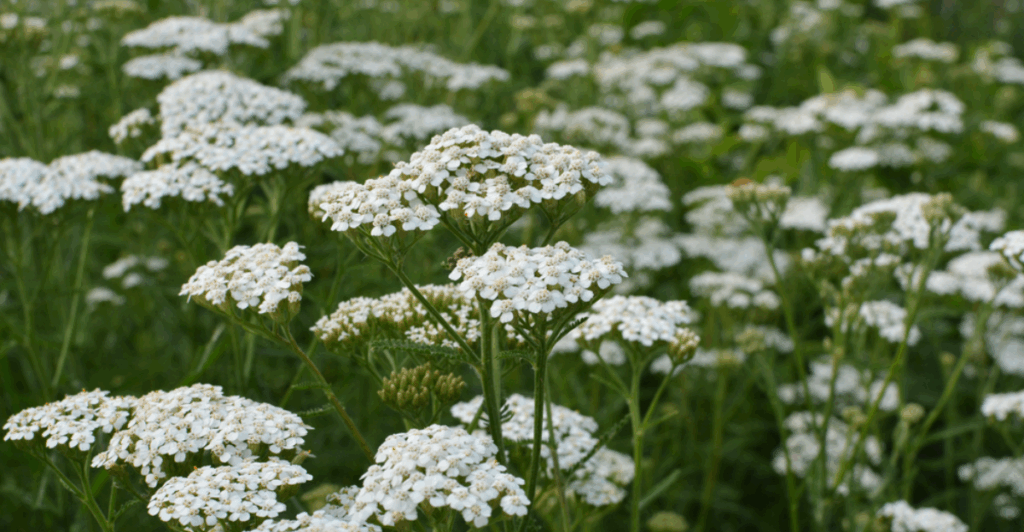
Yarrow is a hardy perennial that can be a valuable companion for roses. It has feathery foliage and small clusters of flowers that come in various colors, such as white, yellow, and pink. Yarrow’s ability to repel pests like aphids and its tolerance to poor soil make it an ideal companion for roses. It can also attract beneficial insects such as ladybugs and hoverflies, which help keep harmful pests away.
Yarrow thrives in full sun and well-drained soil, conditions that roses enjoy as well. This plant requires little care and can withstand dry conditions once established. Its bold flowers and long-lasting blooms create a stunning contrast to the soft petals of roses. Yarrow’s pest-repelling and pollinator-attracting qualities make it an excellent choice for enhancing your rose garden.
This article originally appeared on Avocadu.
